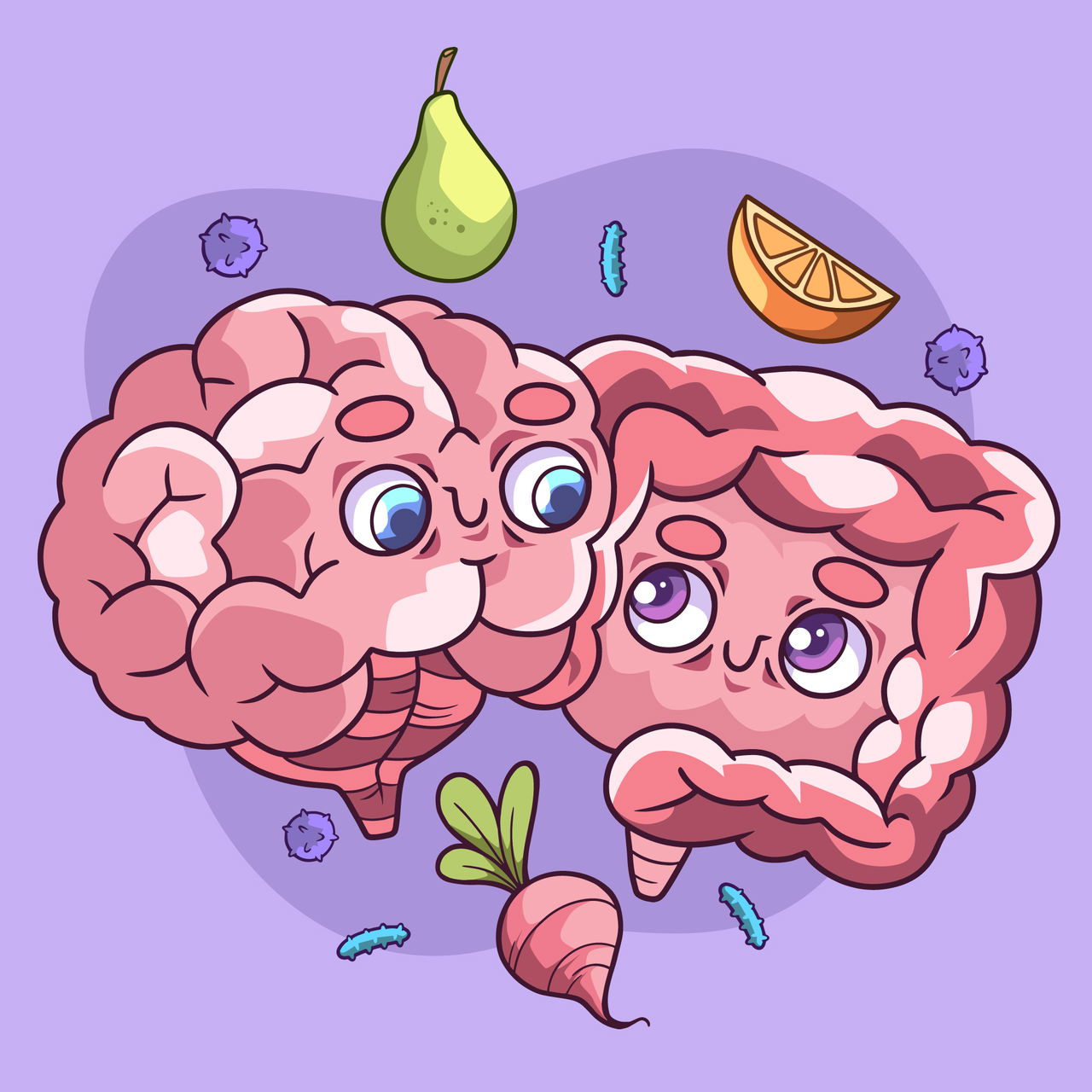Hibrid guide
Understanding the Gut-Brain Axis: How Gut Health Affects the Brain
8 min. read


Written by
Alicia Madison
Published
Fri, 25 Oct 2024
Introduction
The phrase "you are what you eat" might be truer than we ever realized. The gut and the brain are in constant communication, influencing everything from mood and memory to immune function. This complex interaction, known as the gut-brain axis, highlights the critical role gut health plays in overall mental and physical well-being. In this article, we’ll explore how this bi-directional communication works, why maintaining a healthy gut is essential for optimal brain function, and what steps you can take to support it.
What Is the Gut-Brain Axis?
The gut-brain axis refers to the communication network that connects your gastrointestinal system (gut) and central nervous system (brain). This relationship is mediated through:
-
Neural Pathways: The vagus nerve acts as a primary communication highway, sending signals from the gut to the brain and vice versa.
-
Hormones: Chemical messengers like serotonin and dopamine are influenced by the gut microbiome and impact mood and cognition.
-
Immune Signals: The gut houses approximately 70% of your immune system, which also interacts with the brain.
Through these mechanisms, the gut can influence mental clarity, emotional balance, and even conditions like anxiety or depression.
The Role of the Microbiome in Mental Health
Your gut microbiome, a diverse ecosystem of trillions of bacteria, fungi, and other microorganisms, plays a central role in gut-brain communication. When your microbiome is balanced, beneficial bacteria thrive and contribute to the production of neurotransmitters, immune molecules, and other substances that support brain health.
-
Serotonin Production: Approximately 90% of the body’s serotonin is produced in the gut. Serotonin is a key neurotransmitter involved in regulating mood, sleep, and appetite.
-
Inflammation Regulation: A healthy gut helps control inflammation, a factor linked to neurodegenerative diseases and mental health conditions like depression.
-
Stress Response: An imbalanced microbiome can disrupt the stress response, making it harder for the brain to regulate emotions and anxiety.
Signs of an Imbalanced Gut-Brain Axis
When the gut-brain connection is disrupted, you may notice physical and mental health issues. Common signs include:
Digestive discomfort (bloating, constipation, or diarrhea).
Mood swings, anxiety, or depression.
Difficulty concentrating or brain fog.
Chronic fatigue or low energy.
Improving the Gut-Brain Axis: Practical Strategies
To optimize the gut-brain axis, focus on nourishing both your gut and brain through targeted lifestyle changes.
1. Eat a Fiber-Rich Diet
Dietary fiber feeds beneficial gut bacteria, promoting a balanced microbiome. Foods like fruits, vegetables, whole grains, and legumes are excellent choices.
-
Prebiotic Foods: Bananas, onions, garlic, and asparagus.
-
Probiotic Foods: Yogurt, kefir, sauerkraut, and kimchi introduce live beneficial bacteria to the gut.
2. Incorporate Omega-3 Fatty Acids
Omega-3s, found in fatty fish like salmon, flaxseeds, and walnuts, support brain health and reduce inflammation in the gut.
3. Manage Stress
Chronic stress negatively impacts the gut microbiome and gut-brain communication. Practice mindfulness techniques like meditation, yoga, or deep breathing to calm the nervous system.
4. Consider Targeted Supplements
-
Probiotics: Help replenish beneficial bacteria and restore microbiome balance.
-
L-glutamine: Supports the integrity of the gut lining, preventing "leaky gut."
-
Vitamin D: Plays a role in maintaining the gut’s microbial diversity.
5. Stay Physically Active
Exercise promotes healthy gut bacteria and boosts endorphin production, creating a positive feedback loop for the gut-brain axis.
6. Get Quality Sleep
Poor sleep disrupts the microbiome and weakens gut-brain communication. Aim for 7-9 hours of sleep nightly and maintain a consistent bedtime routine.
Emerging Research: Gut-Brain Axis and Neurodegenerative Diseases
Scientists are exploring how the gut-brain axis impacts conditions like Alzheimer’s and Parkinson’s disease. Dysbiosis (an imbalance in gut bacteria) has been linked to increased neuroinflammation and faster cognitive decline. This area of research underscores the importance of gut health for long-term brain health.
Key Takeaways
The gut-brain axis is a two-way communication system that links your digestive and nervous systems.
A healthy gut microbiome plays a significant role in producing neurotransmitters, regulating inflammation, and supporting emotional well-being.
By adopting gut-friendly habits—such as eating fiber-rich and probiotic foods, managing stress, and staying active—you can optimize gut-brain communication and improve overall health.
In Conclusion
The gut and brain are deeply interconnected, forming a dynamic relationship that affects both physical and mental health. Taking care of your gut is more than just a digestion strategy—it’s a brain-boosting, mood-enhancing, and health-optimizing practice. Start small by incorporating gut-friendly foods and practices into your routine, and you’ll likely notice significant benefits in how you feel, think, and function.

Alicia M.
@alicia_96
